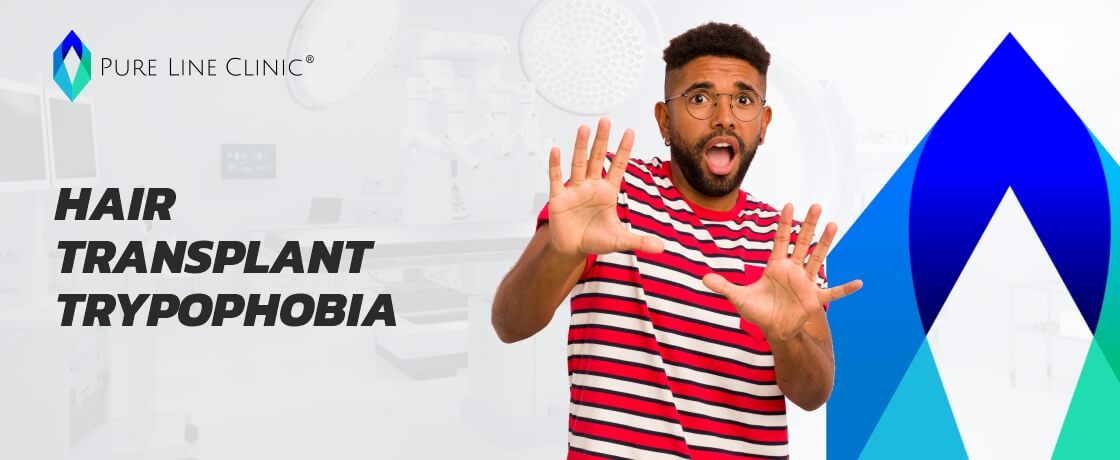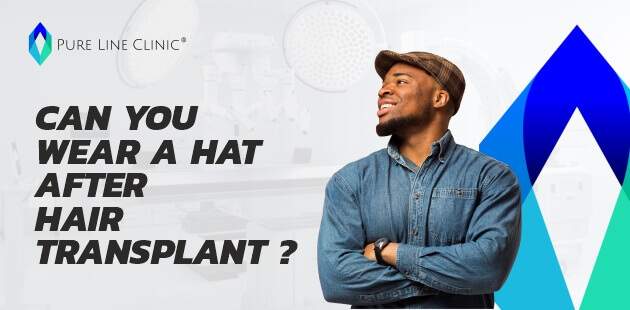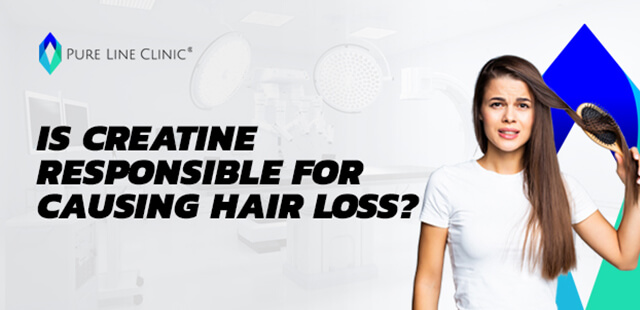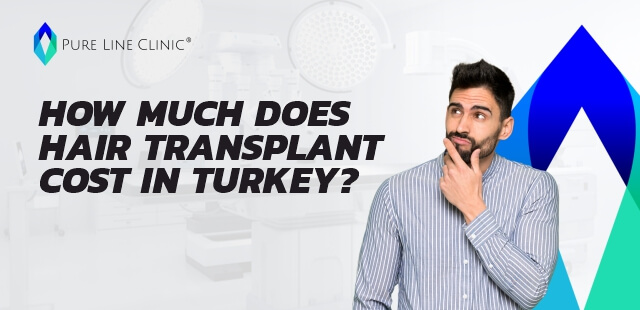
Hair Transplant Trypophobia
After hair transplantation, there are visible changes on the scalp of the people. Problems such as regional redness, clarification of hair follicles, crusting, and shedding of transplanted hair may occur. The resulting image creates a feeling of serious discomfort in some people.
Underneath this feeling is a type of phobia called "Trypophobia". Trypophobia is a type of fear of holes, cracks, or cavities. Although its relationship with hair transplantation may seem strange at first, it is a common phobia. Trypophobia is a physiological reaction of the person depending on his fear or perceiving an event as a threat.
What is Hair Transplant Trypophobia?
Hair transplant Trypophobia is first revealed to observe the changes in the scalp of people who have had hair transplants. These people also have Trypophobia in their daily lives. Perceiving pits that are close to each other as a possible threat can create tension in people. Another symptom is nausea. People with severe Trypophobia may also experience vomiting symptoms.
Pure Line Clinic ® enlightens its patients on this subject in the light of professional practices. People who show symptoms of Trypophobia during the preliminary interview can consult hair transplant specialists about this issue. Fear, disgust, chills, nausea, itchy skin, sweating, heart palpitations, dizziness, or a desire to avoid the situation may occur due to Trypophobia. People who will be applied with hair transplant specialists at Pure Line Clinic ® should share their symptoms with hair transplant specialists.
What Causes Trypophobia?
The underlying cause of Trypophobia is unknown. However, there are some theories put forward by experts. According to the findings within the scope of previous studies, the skins of animals with deadly venoms, such as snakes and blue-eyed octopuses, are in the consciousness of people. The perception of these animals as a threat to life reveals this phobia.
In today's data, circular images of current diseases such as chickenpox, measles, ticks, or scabies trigger phobia. The circular disturbances created by these situations create the impression that a bad situation has occurred in people. A similar situation emerges in the hair follicle structure, which is exposed as a result of hair transplantation Trypophobia. People may perceive the exposed image as a threat.
In What Other Situations Can Trypophobia Occur?
Trypophobia is not specifically fear of hair transplant. A feeling of tension, nausea, or fear may also occur in other events with similar perforated images in people. The following cases can trigger Trypophobia.
- Sponges used for cleaning kitchens
- Soap or shampoo foams
- Coral or other perforated sea creatures
- Honeycomb and bee hive
- Air bubbles on the water
- Vegetables and fruits consisting of circular clusters such as strawberries, pomegranates, and corn
- Blisters on the skin
How is Hair Transplant Trypophobia Treated?
Trypophobia is a condition that affects daily life. Having a phobia makes the treatment process difficult. For Trypophobia, people need psychological support. Since it is an irrational fear, it is a long-term process to overcome the phobia. In advanced cases, methods such as psychotherapy and hypnosis can be applied. Pure Line Clinic ® provides the necessary guidance for people who want to overcome their hair transplant Trypophobia. In this way, after hair transplantation, people are minimally disturbed by the current image.
If this situation occurs for a patient who will have hair transplantation, he or she should get professional support at this point. This unrealistic thought pattern can be reduced or passed through psychotherapy practices.

Can You Wear a Hat After Hair Transplant?
Most of specialists will advise you to hold off wearing a hat or cap for at least ten days. Your transplanted grafts must root in the balding areas for 7–10 days.

Is Creatine Responsible for Causing Hair Loss ?
Creatine is utilized in hair strengthening treatments. But, does taking creatine make you lose your hair?

How Can I Find Best Hair Transplant in Turkey?
We are aware of how difficult it is to find the best hair transplant clinic in Turkey. To make this selection easier, let’s talk about the Pure Line Clinic ® difference.

How Much Does Hair Transplant Cost in Turkey?
Have you been looking to have a hair transplant for a while and you think how much it will cost in Turkey? In this article, we are talking about hair transplant costs in Turkey.

Hair Transplant for Women
Ladies can also go through hair transplantation at the Pure Line Clinic ®. It is usually possible to have a hair transplant without shaving.

Are You Looking For Free Hair Transplant Consultation Near You?
In the changing world conditions, there is no need for the clinic to be nearby for a hair transplant consultation.Pure Line Clinic ® provides this process remote for you free of charge.

Shock Hair Loss After Hair Transplant
Shock hair loss occurs between the second and eighth weeks after a hair transplant surgery. At the point when your new hair enters a resting stage, the hair is shed.

FUE vs FUT, Which is Better Hair Transplant Method ?
FUE Hair Transplant method, which has increased its popularity recently, is the most used hair transplant method in Turkey. Both methods have different advantages.

What is Regenera Activa Treatment?
Regenera Activa is an innovative, non-surgical hair restoration treatment that employs autologous micrografts to stimulate follicular regeneration and combat hair loss effectively.

Can Stress Cause Hair Loss ?
The quick answer is that stress can cause to hair loss. Telogen effluvium, alopecia areata, and trichotillomania are three kinds of hair loss that can be induced (or made worse) by stress. Stress-related hair loss is usually transient, so you

How Long Does a Hair Transplant Last?
It is important to get your hair transplant performed by a qualified and reputable hair transplant specialist if you want it to last a lifetime.

Wayne Rooney Hair Transplant
Our hair specialists believe Wayne Rooney underwent at least one hair transplant procedure, based on his ‘before’ and ‘after’ photos, which show tell-tale signs of follicle implantation along the front hairline.

Alopecia Risk Factors and What to do Them
Alopecia is not always caused by genetics, although people with a family history of alopecia are at a higher risk of acquiring some kind of alopecia.

Side Effects of Hair Transplantation
The Pure Line Clinic ® says that hair transplants are generally safe when a qualified, experienced medical team performs them. However, even with successful hair transplants, some side effects can happen.

Does Minoxidil Work?
Minoxidil is readily absorbed and begins to operate almost immediately to enhance blood circulation in your scalp and speed up your natural hair growth cycle.